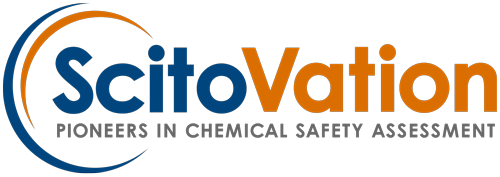Metabolically competent HepaRG™ cells can be used to quantify traditional measures of genotoxicity: the comet assay using high throughput CometChip® technology and flow cytometry-based micronucleus assay.
Toxicogenomics profiling in HepaRG™ cells can be used to assess Mode-of-Action.
The HepaRG™ genotoxicity testing platform can be integrated with measures of genotoxicity to derive BMD and at ScitoVation IVIVE to provide quantitative measures of potential risk to humans.
About our Speaker:
Dr. Leslie Recio, DABT, Chief Scientific Officer at ScitoVation has thirty years of experience in investigative toxicology research in the areas of mutagenesis, toxicogenomics and regulatory based genotoxicity assessment using in vitro cell culture methods, in vivo studies in rodent models, and toxicogenomics. He received both his M.S. and PhD in Toxicology from the University of Kentucky. Dr. Recio has published more than 110 manuscripts in the peer-reviewed literature examining mode-of-action, risk assessment based genetic toxicology studies, identification of biomarkers of cytotoxicity, genotoxicity, and mutagenicity. Dr. Recio served on board of Councilors for the North Carolina Chapter of the Society of Toxicology (2006-2008), and in 2006 was the President of the Genetic and Environmental Mutagenesis Society. In 2010, he was appointed to the SOT Council on Diversity Initiatives and in 2012 elected President for the SOT’s Hispanic Organization for Toxicologist. In 2012- present serves on OECD Expert Group charged with revising OECD genetic toxicology test guidelines. Dr. Recio serves on the Editorial Board for Mutation Research – Reviews in Mutation Research and was an Editorial Board Member and an Associate Editor for Toxicological Sciences from 2010-2019.
Abstract:
Next-generation genotoxicity assessments using human-relevant metabolically competent hepatocytes as New Approach Methods (NAMs) are aimed at reducing, replacing and refining the use of animals in the practice of genetic toxicology. In collaboration with MIT (Engelward Lab) and U Ottawa (Yauk Lab), we are integrating traditional genetic toxicology endpoints with genomic profiling to assess genotoxicity in HepaRG™ cell platform. High throughput comet assay using CometChip® technology, a single cell array platform developed at MIT, flow cytometry-based micronucleus (MN) assay, and toxicogenomics can be integrated into a single experiment for uses as a human-relevant in vitro alternative to rodent genotoxicity assessments. Interlaboratory validation trials initiated in 2021 are developing the needed data to gain acceptance for the use of the HepaRG™ CometChip® assay as in vitro alternative to the in vivo Comet assay. More recently, MN assay and toxicogenomics based mode-of-action has been integrated into this platform. Multiple endpoint genotoxicity assessments in metabolically competent human hepatocyte models can serve as an alternative to animals for equivalent or better human-relevant safety and risk assessments rather than relying solely on rodent models. The HepaRG™ work was funded by NIEHS SBIR 4R44ES024698-02 and Health Canada.
About ScitoVation:
ScitoVation helps clients assess chemical compound safety using innovative science, next-generation technology, and professional expertise. ScitoVation is known for partnership, flexibility, and proven success in its work to develop safer and more effective pharmaceuticals, food ingredients, agricultural chemicals, commodity chemicals and consumer products. A spin-off of the former The CIIT and The Hammer Institutes for Chemical & Drug Safety Sciences, ScitoVation is an industry leader of New Approach Methods (NAMS) for chemical/drug discovery & development in the rapidly evolving global regulatory landscape.
